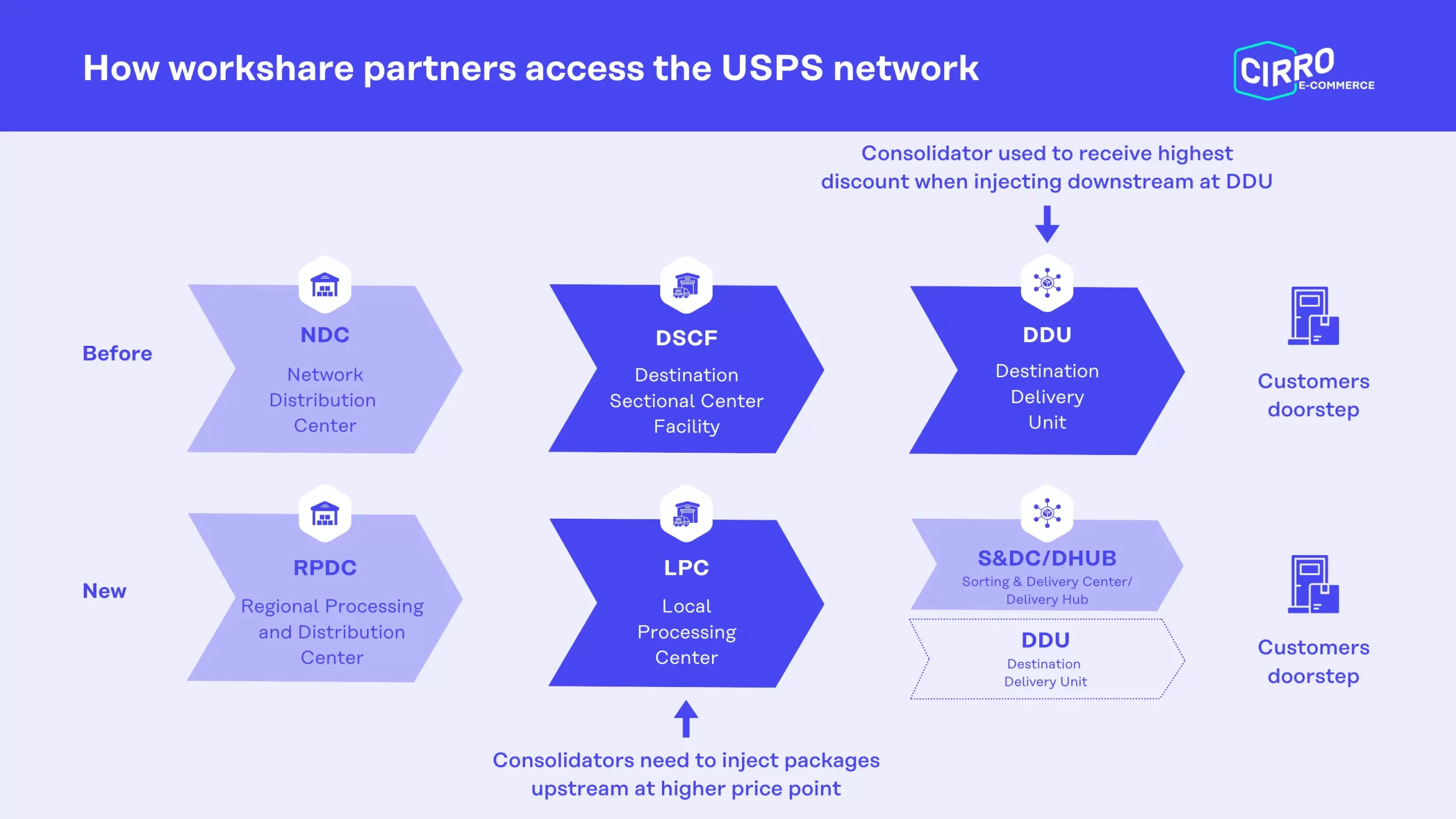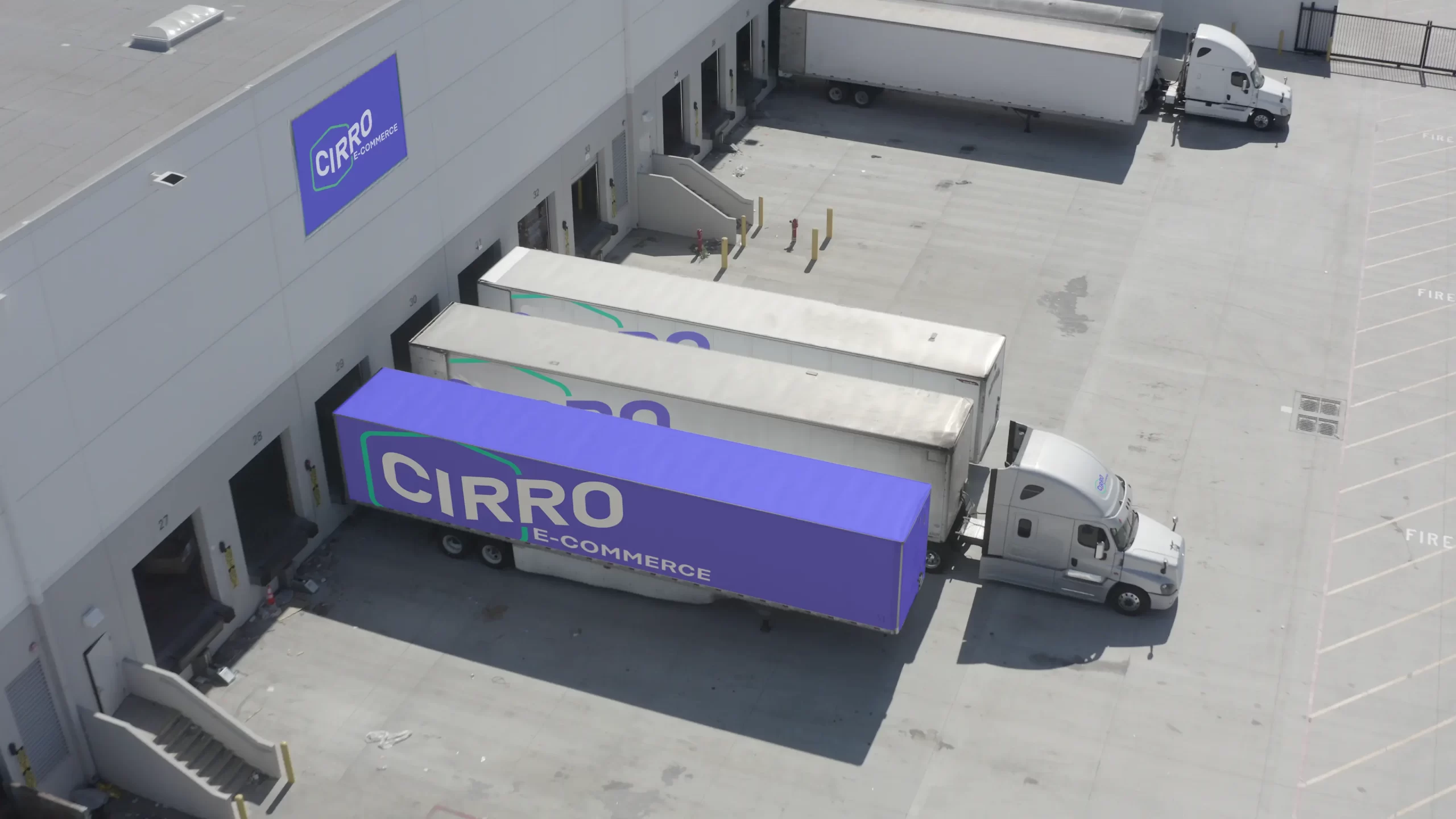The U.S. Postal Service (USPS) has ended its rate discounts for key shipping partners delivering packages directly to USPS Destination Delivery Units (DDU), USPS’s final stop before reaching the consumer. What are the potential impacts on your shipping strategies, and how can you adapt to staying competitive? Let’s break it down.
Understanding the change in USPS DDU discounts
Previously, Destination Delivery Unit (DDU) injection allowed parcel consolidators to access the lowest cost by dropping mailbags at USPS’s final delivery unit, the post office. Upon arrival at the DDU, mailbags were opened, and packages were processed for delivery within the vicinity of the post office (typically within the area of one or two 5-digit zip codes).
Under the USPS “Delivering for America” plan, DDU discounts are eliminated, forcing consolidators to inject parcels at higher cost earlier at upstream processing centers, known as Destination Sectional Center Facilities (DSCF) or – per new USPS terminology – Local Processing Centers (LPC). Moreover, the USPS has announced plans to establish processing centers between the previous DDU and DSCF levels, such as Sort &Delivery Centers (S&DC) or Delivery Hubs (DHUB). However, none of these will provide the same level of discounts as DDU.

What does this change mean for your business?
Rising cost
The USPS Parcel Select service saw a price hike, with new published rates taking effect on July 14, 2024. On average, prices have risen by 25%, with a 43.4% increase specifically for deliveries at the Destination Delivery Unit (DDU) level.
DDU was the highest discounted rate structure parcel consolidators could access. With DDU discounts disappearing, shipping costs are expected to rise as consolidators may have to adjust their pricing to account for the higher injection cost to the USPS at earlier handoff.
Potential delivery delays
Industry experts have raised concerns about possible delivery delays due to the shift in volume upstream. Where previously with DDU injection the USPS only had to arrange for local final mile delivery, now with DSCF (LPC) injection it will need to sort volumes by 5-digit zip code, arrange linehaul transportation to the DDU and then arrange final mile delivery. This could place additional strain on an already burdened Postal Service network. For e-commerce companies and other shippers, these changes could disrupt current logistics models that rely on USPS deliveries.
Reevaluating logistics strategies
To remain competitive, businesses need to reassess their shipping partners and explore alternatives in a post-DDU world. Diversifying carriers will help to control costs and enhance service. The ability to adapt a more flexible shipping model will be crucial in the changing parcel delivery landscape.
CIRRO E-Commerce leads the way with a new solution for e-commerce shipping
CIRRO E-Commerce is ahead of the curve, introducing a new solution in response to the impact of the USPS changes. Our Hybrid Solution is built for cost-sensitive e-commerce parcels with optimized middle-mile and last-mile options.

What makes our Hybrid Solution special?
We believe that merging non-postal and postal deliveries is the key to overcoming today’s market challenges. Our approach builds a competitive nationwide network, ideally suited for e-commerce shippers, including brands, online sellers, 3PL providers, and marketplaces.
By offering non-postal direct-to-consumer deliveries in densely populated areas and postal deliveries in more rural areas, we ensure faster, more cost-effective shipping.
- 100% nationwide coverage: With seven logistics hubs across the U.S., we offer full nationwide coverage, ensuring efficient service to all locations.
- End-to-end shipping optimization: We streamline the entire process, from pick-up and scanning to sorting and final delivery—creating a smooth, hassle-free experience.
- Dynamic operational capabilities: Adapt to fluctuating parcel volumes and market conditions.
- Integrations with major logistics platforms: We integrate with logistics platforms ShipStation, EasyPost, DesktopShipper, etc, so you can work effortlessly to streamline operations and manage your shipping process and workflows.


